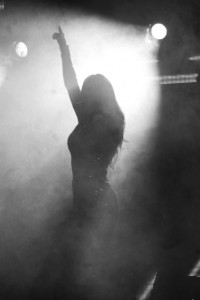An appeals court in Ohio has ruled that a strip club may not be held legally responsible for the severe injuries suffered by a third party when one of its dancers drove home from work intoxicated. 
Customers at the club routinely purchase drinks for the dancers, who are allowed to drink alcohol while on-the-clock. One of the dancers apparently drank too much before getting into her vehicle to drive home after her shift. She crashed her car on the way back, causing severe injuries to another woman.
At trial, jurors overseeing the dram shop act case held the club liable to pay $1.43 million of a $2.85 million damage award for the injured woman. However, the Second District Court of Appeal reversed, finding in Johnson v. Montgomery that the state’s dram shop law is not applicable to the employee in this case. That’s because Ohio’s dram shop law only allows an alcohol vendor to be held liable for injuries caused after service of alcohol to either a minor or someone who is visibly intoxicated. The trial court should have accepted the strip club’s request for a directed verdict before the case went to the jury.
Although the case has no direct bearing on dram shop drunk driving injury lawsuits in Massachusetts, it does offer an example of how these cases can be challenging. In Massachusetts, although there is no specific dram shop law statute, M.G.L. 138, Section 69, prohibits businesses licensed under Chapter 138 to sell alcohol to persons who are intoxicated. Courts have held that businesses can be held liable for third-party injuries in civil court when they violate this statute.
In the Johnson case, it all started at a strip club known as “The Living Room,” run by a company known as “Third-Eight Thirty in Dayton. When this happened in 2010, dancers paid $30 each per shift to “rent” space to dance. They were only paid “wages” by customers who offered tips. If customer bought alcoholic drinks for dancers, the club charged a higher price than what customers typically paid for their own. The club’s owner reported between 200 and 300 customers nightly, with 95 percent of the club’s profits derived from the sale of alcoholic beverages.
There was no policy mandating that dancers drink. However, it was fairly common for dancers to get drunk on the drinks bought for them by customers. The club did not check before dancers left to make sure they were Ok to drive or offer any sort of alternative transportation.
On the night in question, one of the dancers reportedly consumed three customer-purchased beers. While driving on the interstate shortly after 2 a.m., she lost control of her vehicle and hit another, slamming it into a brick wall. The female passenger in that other car suffered extensive injuries as a result of that drunk driving accident, including:
- Traumatic brain injury
- Numerous skull fractures
- Broken teeth
- Broken ribs
- Other bone fractures
- Collapsed lung
- Lacerated liver
In all, she had to undergo 11 surgeries to treat her ailments, in addition to a full year of intensive physical and occupational therapy.
Plaintiff sued both the driver and the strip club. Jurors decided both entities shared part of the blame, and ordered payment for past and future medical expenses, pain and suffering and lost wages.
Unfortunately for plaintiff, the appellate court ruled that the state’s dram shop act doesn’t allow third parties injured by drunk drivers to hold responsible liquor permit holders for failure to control drinking by employees or independent contractors during their shift.
This doesn’t necessarily mean such a lawsuit couldn’t succeed in Massachusetts. If you have been injured by a drunk driver in Boston, we can help.
If you or someone you love has been injured a Boston drunk driving accident, call for a free and confidential appointment at (617) 777-7777.
Additional Resources:
Johnson v. Montgomery , April 8, 2016, Ohio Court of Appeals, Second Appellate District
More Blog Entries:
Report: Possible Tougher Drunk Driving Laws in Massachusetts, March 30, 2016, Boston Drunk Driving Accident Lawyer Blog
 Boston Drunk Driving Accident Lawyer Blog
Boston Drunk Driving Accident Lawyer Blog

